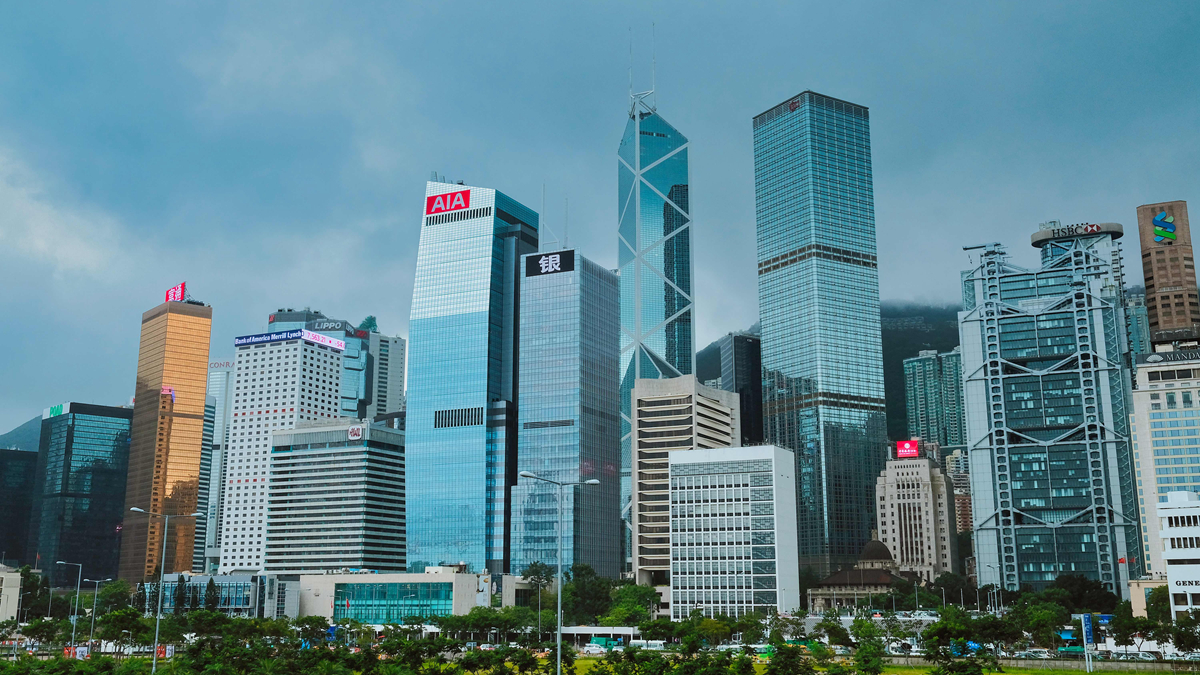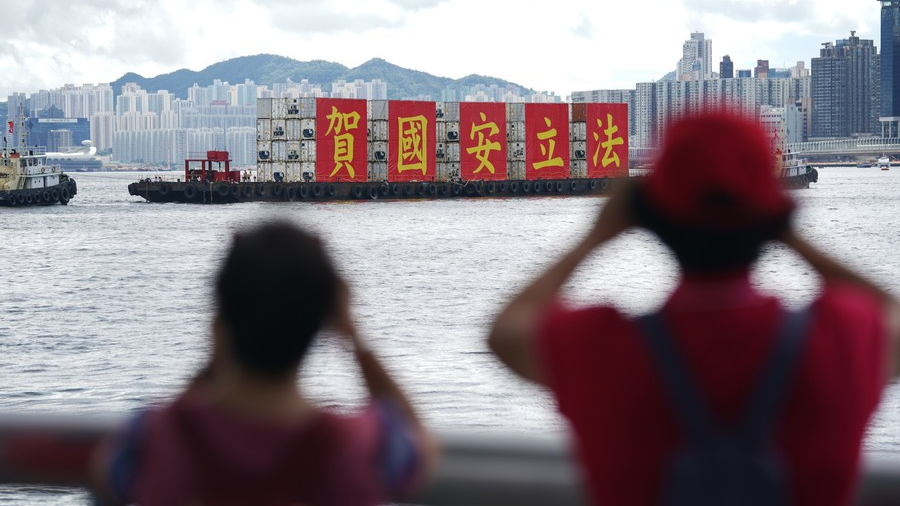
A view of the Hong Kong skyline. /CFP
A view of the Hong Kong skyline. /CFP
Editor's note: Zhu Zheng is an assistant professor focusing on constitutional law and politics at China University of Political Science and Law. The article reflects the author's opinions, and not necessarily the views of CGTN.
The Hong Kong Bar Association elected Victor Dawes as its new chair this week. The news has drawn attention from media outlets at home and abroad as Dawes has vowed to safeguard Hong Kong's rule of law, and more importantly, avoid politics and build closer ties with the Chinese mainland.
Dawes has replaced human rights lawyer Paul Harris, who had criticized the national security law and had been labeled as "anti-China politician." On the contrary, Dawes has been considered as a low-profile barrister who would rather stay away from politics.
Though he received his legal education in the United Kingdom, Dawes is considered to be a pro-establishment figure. He said that he will be dedicating himself to thawing the Hong Kong Bar Association's frosty relations with the mainland. In a recent interview, Dawes also told reporters that the rule of law is "not a political concept" and "political topics are not something for the Bar Association to handle or discuss."
This is in stark contrast with a predecessor, Philip Dykes, for example, who had made the professional body more vocal on significant legal issues that had brought its routine exchanges with the mainland to a complete halt.
Also, British-born Harris had been lambasted by the Liaison Office for having "spread distorted opinion" and said the association under his leadership was "stepping into an abyss." As a result of these chairmen's political stance, the professional group had been highly "politicized."

A ship carrying the slogan "celebrating the passage of the Law of the People's Republic of China on Safeguarding National Security in the HKSAR" in Victoria Harbor in Hong Kong, south China, July 1, 2020. /Xinhua
A ship carrying the slogan "celebrating the passage of the Law of the People's Republic of China on Safeguarding National Security in the HKSAR" in Victoria Harbor in Hong Kong, south China, July 1, 2020. /Xinhua
Dawes, however, prefers to avoid flare-ups that might anger the Central Government. According to him, barristers should not be seen as "politicians in wigs" and the role of the association itself is not a political story.
The statements above have been construed by analysts of the Hong Kong Special Administrative Region (HKSAR) as sending positive signals. By any measure, it means that Dawes wants to restore links with the Chinese mainland, and the role the HK Bar Association plays in the administration of justice will be normalized.
It should be aware that, from a strategic point of view, bringing the association back on a right track and ameliorating the relations with the mainland will at least yield three positive results.
First of all, the professional body itself will continue to thrive. For years, the ties between the mainland and the Bar Association have been strained because of the political stance of some heads. On Paul Harris's watch, for instance, the liaison office once warned that if the association failed to cut ties with its chairman, the 73-year-old body in Hong Kong would face a series of consequences.
A reset of the relationship therefore would be much needed to "save" the body.
Secondly, maintaining a positive interaction with the mainland would help to accomplish the object of the body. As the only body of barristers, the Hong Kong Bar Association would not only prescribe rules of professional conduct, discipline and etiquette, but also further understanding of the legal profession and improvement of the administration of justice in Hong Kong.
After turbulence and chaos of the city, many senior barristers argued that "the bar needs people who talk only about professional business, opportunities and practice development, but who will remain committed to the rule of law." Instead of "politicizing" the body, the new chief aims to heal the division between different fractions and bring the group back on track, which is in the interest of the whole legal profession in Hong Kong.
With a new chairman and some changes of its compass, the association appears to be on the way to dropping politics and readjusting its focus to its duties as an independent professional body that will protect the interests of its members and defend rule-of-law values. In this light, the association could be heading a new way into the future.
(If you want to contribute and have specific expertise, contact us at opinions@cgtn.com.)

